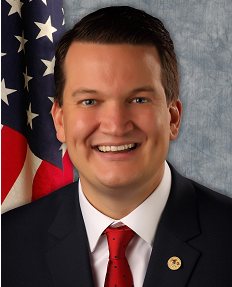State Senator Andrew Chesney (R-Freeport) wants to raise the ethical bar for state-level public officials by strengthening penalties for those found guilty of public corruption or other serious crimes.
“Unblemished ethics should be at the center of everything we do as lawmakers in the Illinois General Assembly,” said Chesney. “Unfortunately, all too often we have legislators who abuse their positions for personal gain. We must have zero tolerance policies in place so that those who would commit criminal acts in association with their duties as lawmakers stand to lose a great deal more than just their seat.”
Senator Chesney has filed three bills he hopes will provide additional incentives to keep lawmakers honest and ethical in their roles as public servants. They include:
SB 1687: Prohibits legislators from using their political committee funds to pay for attorneys, expert witnesses, investigators, or others in a criminal case.
SB 2137: Requires legislators convicted of a felony in relation to their role as a member of the General Assembly to pay a minimum fine of $100,000.
SB 1662: Strips legislators convicted of felonies of their retirement license plates.
“We need to be striking these bad actors right where it hurts most, and that’s in their wallets,” Chesney said. “Today, legislators facing public corruption charges can fund their entire defense with campaign contributions, so there’s no personal cash being used. Those with huge political war chests, like former Speaker of the House Mike Madigan, likely won’t have to spend a dime of their own money when they go to trial for their political misdeeds.”
Chesney continued, “Illinois imposes fees for all kinds of infractions, and political corruption convictions should be no different. A $100,000 minimum fine makes sense when elected officials abuse the trust placed in them by those they were elected. Honor and ethics go hand in hand, and those who would thumb their noses at their responsibility to conduct themselves in accordance with the law should have to pay a steep price.”
All three bills are pending assignment to a substantive committee.







